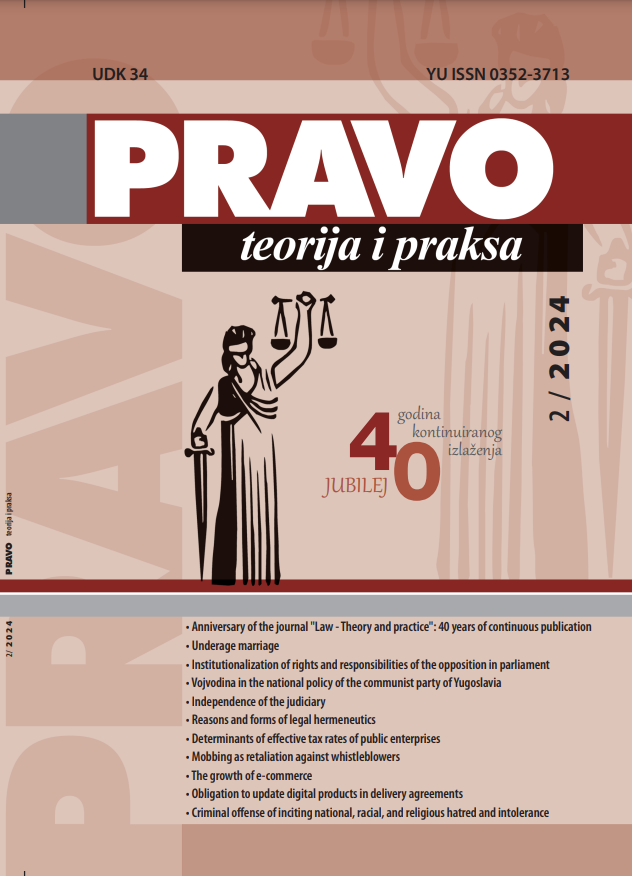REASONS AND FORMS OF LEGAL HERMENEUTICS
REASONS AND FORMS OF LEGAL HERMENEUTICS
Author(s): Dejan Logarusic, Milan Rapajić, Darko GolićSubject(s): Philosophy of Law
Published by: Pravni fakultet za privredu i pravosuđe u Novom Sadu
Keywords: interpretation of law; hermeneutics; legal norms; value judgements; theory of law
Summary/Abstract: Hermeneutics, or interpretation, can be defined as a procedure to clarify something that is incomprehensible, unclear or insufficiently understandable, insufficiently clear, and to interpret it to the level of comprehensibility. Hermeneutics can rightfully be called the art of understanding. Legal hermeneutics as an art is, in principle, a very complex process that can also be characterized as a process requiring the application of knowledge from various scientific fields. Legal knowledge, in the specific case of interpreting legal norms by procedural bodies, cannot be disputed. However, legal knowledge is not always sufficient to ensure adequate interpretation and application of law in a given case. The need for legal hermeneutics arises in situations where there is a discrepancy between the spirit and letter of a legal norm, when the legal norm is unclear, contradictory, ambiguous, or even polysemous, and of course, in situations where there is an absence of legal norms regulating a specific issue. The above indicates the importance and dimension of the application of legal hermeneutics as a timeless skill in the field of law and the application of legal norms. In line with the topic, the paper analyzes several important questions: how to define the term legal hermeneutics, what are the reasons leading to the need for legal hermeneutics, and finally, which characteristic forms of legal hermeneutics can be singled out and presented more closely, according to the criterion of means or methods of interpretation.
Journal: Pravo teorija i praksa
- Issue Year: 41/2024
- Issue No: 2
- Page Range: 94-108
- Page Count: 15
- Language: English

